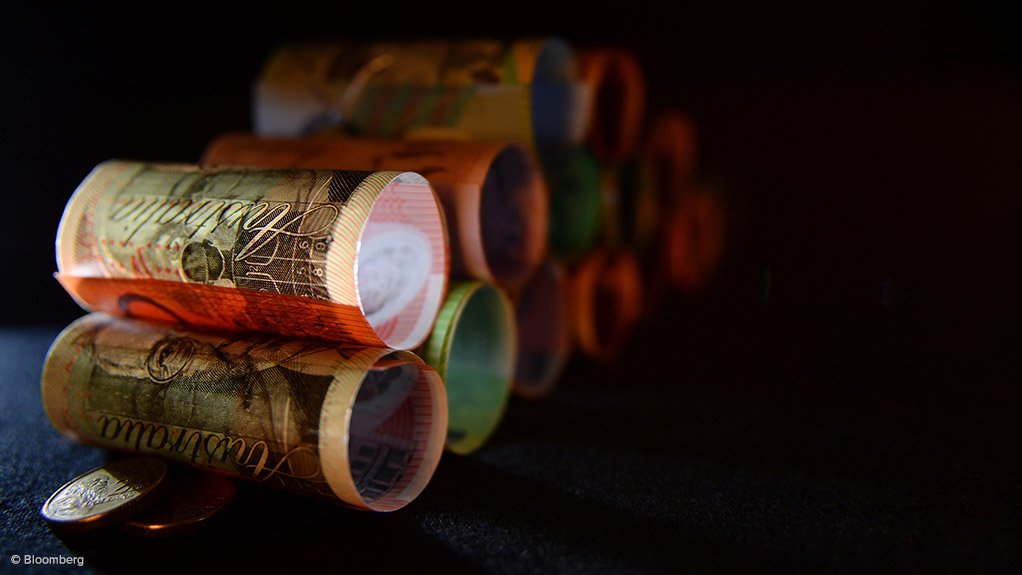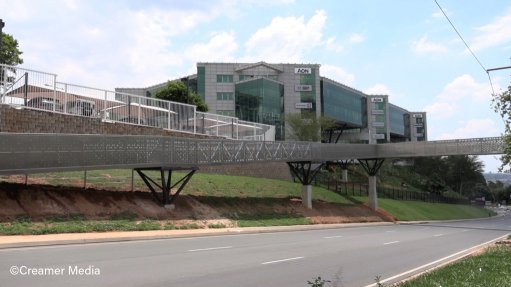Unctad says mixed foreign direct investment activity in 2024 shows shifting dynamics
Foreign direct investment (FDI) globally grew by 11% to $1.4-trillion last year, but contracted by 8% when excluding flows through European conduit economies.
United Nations Conference on Trade and Development (Unctad) finds in its latest ‘Global Investment Trends Monitor’ that conduit European economies often serve as transfer points for investments before they reach their final destination – which reflects a world grappling with shifting economic dynamics and persistent uncertainties.
Developed economies, in particular, experienced sharp contrasts. Unctad reports that North America had recorded a 13% rise in FDI, driven by an 80% increase in US mergers and acquisitions (M&A).
The value of greenfield projects – meaning new investments in foreign markets – grew by 93% in the US, reaching $266-billion, spurred by semiconductor megaprojects.
The UK also recorded a 32% increase in greenfield investments to $85-billion, while Italy posted a remarkable 71% increase to $43-billion.
Europe, however, faced steep declines. In this region, FDI fell 45% when excluding conduit economies, with 18 out of 27 EU countries seeing drops.
Even greenfield investments, which are vital for future growth, dropped 10% across Europe, though the region saw a 15% rise in total project value, which signals the significance of a few large-scale projects.
Germany’s FDI decreased by 60%.
Unctad also finds that international project finance, which is a key driver for infrastructure and energy investments, also faced challenges, with deals dropping 26% in number and nearly a third in value across developed economies.
In developing economies, FDI decreased by 2%, marking the second consecutive yearly decline.
This dip threatens progress on the Sustainable Development Goals (SDG), which depend heavily on international finance. Investments in SDG-related projects fell 11% globally in 2024, with fewer projects in agriculture and food processing, infrastructure and water and sanitation than in 2015, when the SDG goals were adopted.
Asia, the largest recipient of FDI among developing regions, saw inflows decline by 7%.
China faced a 29% drop, which is now 40% below its 2022 peak.
In contrast, India recorded a 13% increase in FDI, boosted by growth in greenfield project announcements.
Meanwhile, Association of Southeast Asian Nations countries, including Brunei Darussalam, Burma, Cambodia, Indonesia, Laos, Malaysia, Philippines, Singapore, Thailand and Vietnam, saw modest growth, with FDI increasing 2% to a record $235-billion.
In Latin America and the Caribbean, FDI declined by 9%, with Brazil’s inflows falling 5%.
However, greenfield project numbers and values rose in Brazil, Argentina and Colombia, signalling potential future recovery.
Mexico’s FDI rose 11%, despite weaker regional project announcements, showing resilience in the face of broader challenges.
Africa stood out, recording an 84% surge in FDI to $94-billion, largely owing to a single megaproject in Egypt. Excluding this project, the continent’s FDI rose by 23%, though the overall figure remained modest at $50-billion.
Looking to this year, Unctad expects moderate FDI growth supported by improved financing conditions and renewed M&A activity.
However, risks and uncertainties – including geopolitical tensions and global economic instability – pose significant challenges.
“The continued decline in greenfield investments and international project finance underscores the need for robust, diversified strategies to attract and sustain investment, especially in sectors critical for sustainable development.
“For both developed and developing economies, the stakes are high as they navigate this complex landscape,” the organisation concludes.
Article Enquiry
Email Article
Save Article
Feedback
To advertise email advertising@creamermedia.co.za or click here
Comments
Announcements
What's On
Subscribe to improve your user experience...
Option 1 (equivalent of R125 a month):
Receive a weekly copy of Creamer Media's Engineering News & Mining Weekly magazine
(print copy for those in South Africa and e-magazine for those outside of South Africa)
Receive daily email newsletters
Access to full search results
Access archive of magazine back copies
Access to Projects in Progress
Access to ONE Research Report of your choice in PDF format
Option 2 (equivalent of R375 a month):
All benefits from Option 1
PLUS
Access to Creamer Media's Research Channel Africa for ALL Research Reports, in PDF format, on various industrial and mining sectors
including Electricity; Water; Energy Transition; Hydrogen; Roads, Rail and Ports; Coal; Gold; Platinum; Battery Metals; etc.
Already a subscriber?
Forgotten your password?
Receive weekly copy of Creamer Media's Engineering News & Mining Weekly magazine (print copy for those in South Africa and e-magazine for those outside of South Africa)
➕
Recieve daily email newsletters
➕
Access to full search results
➕
Access archive of magazine back copies
➕
Access to Projects in Progress
➕
Access to ONE Research Report of your choice in PDF format
RESEARCH CHANNEL AFRICA
R4500 (equivalent of R375 a month)
SUBSCRIBEAll benefits from Option 1
➕
Access to Creamer Media's Research Channel Africa for ALL Research Reports on various industrial and mining sectors, in PDF format, including on:
Electricity
➕
Water
➕
Energy Transition
➕
Hydrogen
➕
Roads, Rail and Ports
➕
Coal
➕
Gold
➕
Platinum
➕
Battery Metals
➕
etc.
Receive all benefits from Option 1 or Option 2 delivered to numerous people at your company
➕
Multiple User names and Passwords for simultaneous log-ins
➕
Intranet integration access to all in your organisation

















